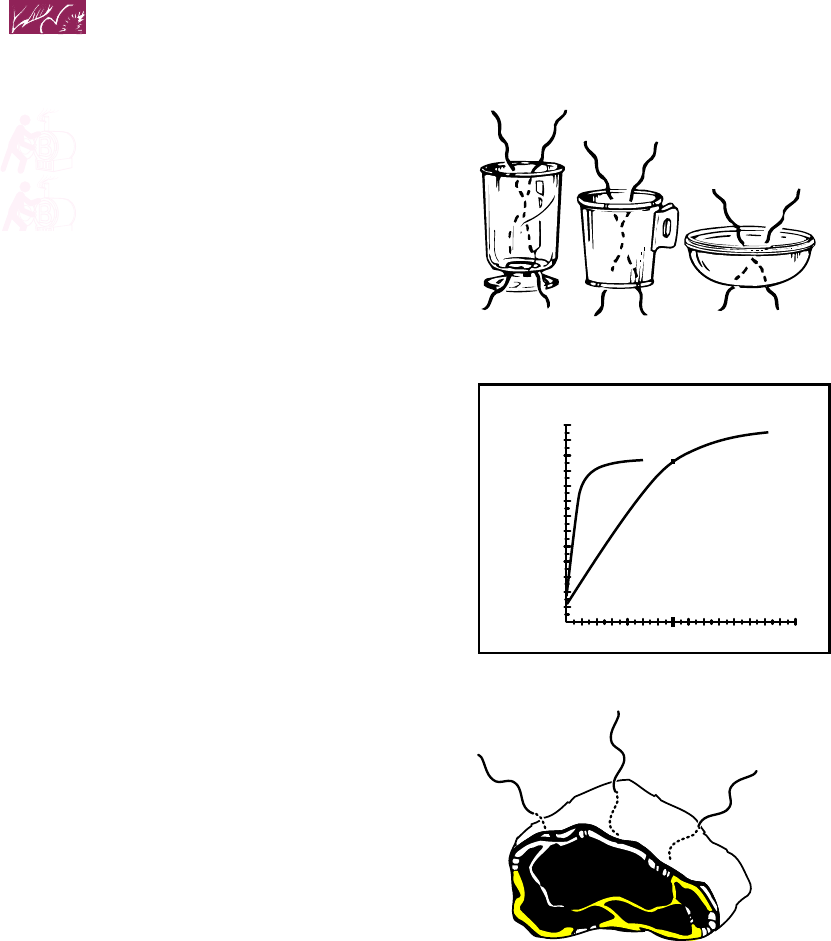
8
Getting to Know Your Microwave Oven
Microwaves pass through most glass,
paper, and plastics without heating them
so food absorbs the energy. Microwaves
bounce off metal containers so food does
not absorb the energy.
Microwaves do heat the CRISPWARE*
Crisper Pan, however. The rubberized
pad on the bottom of the Crisper Pan is
made of a special material which absorbs
microwaves. This heats the pan very
rapidly, browning and crisping the bottom
of the food.
The Crisper Pan reaches 436°F (210°C)
in about 2 minutes (faster than a browning
dish) and stays at that temperature. The
bottom coating of the Crisper Pan is
designed to stop absorbing microwaves at
436°F (210°C), which is the best tempera-
ture for frying.
Microwaves may not reach the center of a
roast. The heat spreads to the center from
the outer, cooked areas just as in regular
oven cooking. This is one of the reasons for
letting some foods (for example, roasts
or baked potatoes) stand for a while after
cooking, or for stirring some foods during
the cooking time.
The microwaves disturb water molecules
in the food. As the molecules bounce around
bumping into each other, heat is made, like
rubbing your hands together. This is the
heat that does the cooking.
Although your CRISPWARE microwave
oven cooks this way also, the Double
Emission System allows microwaves to
reach the center of the food more easily.
This results in faster cooking.
NOTE: Do not deep fry in the oven.
Microwavable cookware is not suitable
and it is difficult to maintain appropriate
deep frying temperatures.
250
230
210
190
170
150
130
110
90
70
50
30
10
1
2 3 4 5 6 7 8 9 10 11 12 13 14 15
MINUTES
DEGREES
CRISP PLATE BROWNING DISH
HEATING UP AT 750W
471
˚
C
˚
F
436
˚
C
˚
F
400
˚
C
˚
F
364
˚
C
˚
F
328
˚
C
˚
F
292
˚
C
˚
F
256
˚
C
˚
F
220
˚
C
˚
F
184
˚
C
˚
F
148
˚
C
˚
F
112
˚
C
˚
F
76
˚
C
˚
F
508508
˚˚
FF
/
/
/
/
/
/
/
/
/
/
/
/
//
˚
C


















